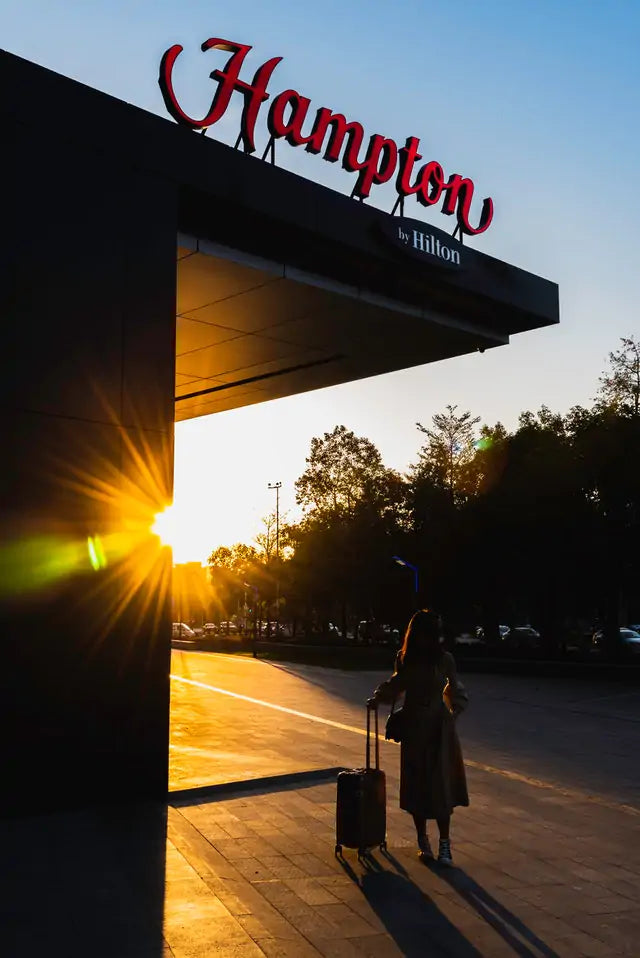Your basket is currently empty.
Shop NowGreen Champions - Hilton

Green Champions
Hilton Hotels
From humble beginnings in a 40-room hotel in Texas in 1919, Hilton Worldwide is now one of the world’s biggest and most recognisable brands in the hotel industry. The corporation owns 12 global brands, made up of 4,500 hotels and timeshare properties.
‘Travel with purpose’
Travel with purpose is Hilton’s framework for their vision and values. It focuses on 3 key areas; Opportunities, Communities, and Environment. They have put 400,000 young people through apprenticeship programmes, and have reduced their carbon footprint, reduced their energy usage and water usage, and joined a global partnership with the WWF, aimed at reducing food waste, and supporting sustainable seafood.
Hilton’s environmental approach
Hilton recognise that as a global business, they have a responsibility to focus on the impact of their operations on the planet. Their goal is to be as efficient as possible, and to identify areas for improvement, through comprehensive monitoring of their business operations. Their goals focus on some key areas.
Energy
Energy is essential for the operation of Hilton’s hotels. But they want to reduce their carbon footprint. They use energy management strategies in all of their offices and hotels, and their employees actively organise energy saving strategies every March to support the Earth Hour project.

Water
Current studies show that demand for water is set to exceed supply by 2030, and not only that, in the next 15 years, 2/3 of the world’s population will be living in areas where a constant water supply is under threat.
Hilton have reduced water usage by 14% since 2009. Since then, they have saved enough water to fill over 4000 Olympic size swimming pools, and they continue to focus on ways that they can save water.
Waste
Studies estimate that urban populations create 1.6 billion tons of waste per year, and more than half of that ends up in landfills. The hospitality industry creates a lot of this waste.
Hilton has worked hard to reduce waste and has reduced the waste they throw away by 27% since 2009. Their waste strategy is called RePurpose, and it is part of their commitment to reduce food waste in their operations and supply chain. They have also worked with soap recyclers to repurpose more than 600,000 pounds of soap.
Carbon
Hilton is proactively investing in renewable energy sources and working with suppliers to reduce their carbon footprint. Since 2009, they have reduced their carbon footprint by 20.9%. This is equivalent to removing over 120,000 cars from the road.
Responsible Sourcing
As a global hotel chain that purchases food and beverages, linens, beds and energy, sourcing can be complicated. They have suppliers in 97 countries, in many different industries, and to make it more complicated they are governed by different laws and they operate in different infrastructures. They have to balance their goal of delivering quality and affordable accommodation to their guests, with ensuring that all of the goods they use in the course of their business are ethically sourced. They have banned the use of shark fin in their restaurants as part of a sustainable seafood strategy, and they purchase goods from businesses owned by women, ethnic minorities, and veterans. They have also built up good relationships with farmers so they can source local produce where possible.


